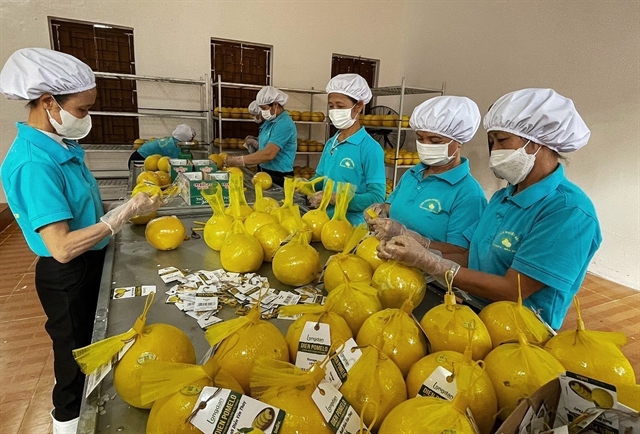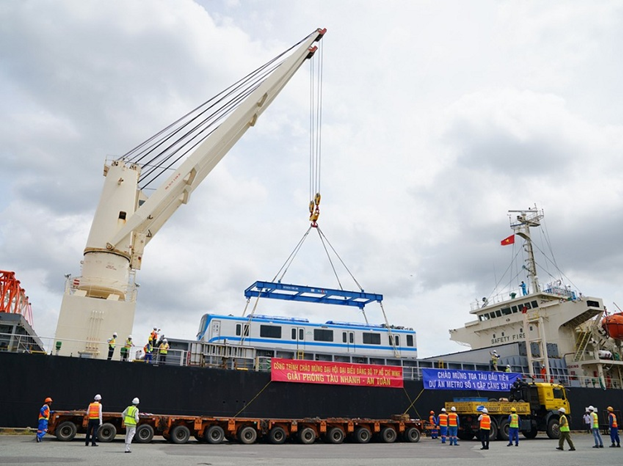 Economy
Economy

 |
| Nguyễn Cảnh Cường, Former Trade Counsellor of the Vietnamese Embassy in the UK. — Photo VNA |
The United Kingdom-Việt Nam Free Trade Agreement (UKVFTA), effective since May 1, 2021, has opened many opportunities for Vietnamese goods in the UK market as it eliminates over 99 per cent of tariff lines within six years. Key beneficiaries include seafood, textiles, footwear, furniture and processed agricultural products. To effectively exploit the UKVFTA, exporters are urged to launch transparent supply chains and invest in green production while not using plastic packaging. The former Trade Counsellor of the Vietnamese Embassy in the UK, Nguyễn Cảnh Cường, shared with Việt Nam News his opinion about these issues.
After over three years of implementing the UKVFTA, Việt Nam's trade with the UK has increased positively, do you think that businesses have taken full advantage of the agreement to accelerate exports?
Vietnamese enterprises indeed have many advantages in accelerating bilateral trade with the UK thanks to the UKVFTA.
After the UK left the EU, the supply chain, as well as the trade relationships of UK enterprises with EU partners, have also somewhat declined.
The data shows that in two-way trade between the UK and the EU, after the UK left the EU, some sectors have decreased by up to 30 per cent. The decline in bilateral trade relations has resulted in gaps in the supply chain. This can be considered an opportunity or a new advantage for Vietnamese businesses because market demand is still there and even increasing.
In addition to that advantage, the trade relationship between Việt Nam and the UK has developed positively. In the minds of British businesses and consumers, Việt Nam is a developing country with an open economy that has deeply integrated, with an increasingly large scale of production and trade thanks to domestic investment and FDI attraction.
British businesses appreciate the Vietnamese economy and the supply capacity of businesses as well. That is great progress, an upgrade in the prestige of the country, its economy, the business community and products, thereby creating more favourable conditions for exporters to access the UK market.
 |
| Workers of Hoà Bình Province's Đại Đồng Cooperatives packing Diễn grapefruit before exporting them to the UK market. — Photo VNA |
What do you advise Vietnamese enterprises to do in the face of challenges regarding sustainability standards and green production for sustainable exports to the UK?
Vietnamese enterprises have enjoyed many favourable factors thanks to the bilateral relationship between the two countries being at a very good stage. The additional boost from UKVFTA then helps them compete more effectively with many similar products from other countries in the region and many other regions in the world in the UK market.
However, I want to emphasise that standardisation is a common and almost a prerequisite requirement for British enterprises when they import goods. That is the trend of sustainable, environmentally friendly consumption, the requirement of supply chain transparency and not using plastic packaging and the ability to trace product origins using digital tools.
At the same time, Vietnamese companies must foster the application of science and technology, develop production systems while investing in deep processing and optimising production cycles to increase the competitiveness of their goods.
In addition to green and sustainable production and traceability of origin, what other requirements do businesses need to comply with?
I want to confirm once again that standardisation is a common and almost prerequisite requirement of British businesses when they want to learn about new products.
At the same time, the trend of sustainable, environmentally friendly and emission-reducing consumption has been a priority agenda of the British Government over many periods and the agenda of emission reduction, environmental pollution reduction and climate change mitigation has been transferred to trade and business policies. British consumers are highly aware of this.
Therefore, Vietnamese suppliers and exporters must be aware of the deep concerns of British businesses and consumers so that their products meet their expectations and, at the same time, do not use plastic packaging.
Next is the requirement for supply chain transparency and product traceability using digital tools. When exporting products to the UK, Vietnamese enterprises must be able to answer buyers' questions about where the raw materials are imported from and what the production process is.
The entire supply chain must be ready for businesses to provide, not in the traditional way, but with a database platform and digital platform available for customers to check themselves. — VNS
Việt Nam-UK trade continues to growHÀ NỘI — Việt Nam's export turnover to the United Kingdom in October was US$687.2 million, up more than 13 per cent compared to September, statistics from the General Department of Customs showed.Over the last 10 months, the country’s exports to the UK amounted to nearly $6.4 billion, a 22 per cent increase compared to the same period last year.The growth has been driven by some key export items with large turnover such as machinery, equipment, spare parts, computers, electronics, footwear and textiles.The leading export category over the last 10 months was machinery, equipment and spare parts, with a turnover of $1.14 billion. This is an annual increase of 39.7 per cent and accounts for 17.9 per cent of total exports.Next was mobile phones and components with over $1.03 billion in turnover, down 12.9 per cent compared to the same period last year and accounting for 16.3 per cent of total exports so far.Some other categories saw significant growth in exports compared to 2023.Computers, electronics and components increased by 30.7 per cent. Handbags, suitcases and umbrellas rose by 18 per cent. Seafood increased by nearly 10 per cent.Base metals grew by 30.2 per cent, wood and wood products by 15.5 per cent, steel products by 34 per cent and transportation means and spare parts by 35.7 per cent. — VNS




